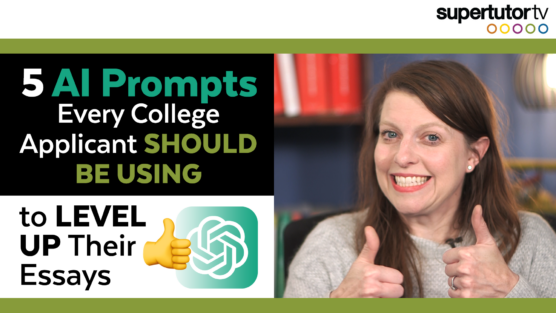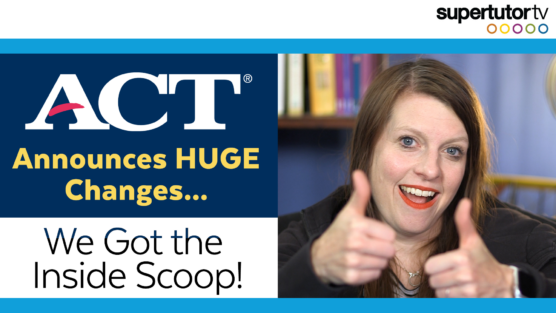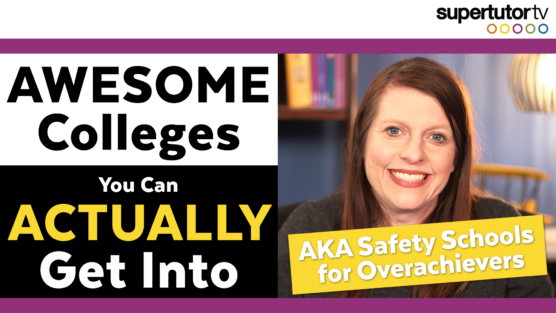Are you a junior halfway through junior year and wondering what you can do to make sure that you’re in good shape to apply to college next year? In this blog, we’ll walk you through helpful thoughts that Brooke talks through during mid-year check-in consulting sessions with students in their junior year.
The first thing—and to Brooke, this is probably the most important thing—is to plan and explore your interests. This is a theme on Brooke’s channel, but midway through your junior year, it’s really important that you start to think beyond just where you want to go to college. One of the things that a lot of students don’t have when applying to college is a sense of direction. It’s important to think about the future for two different reasons. The first is that it makes you an attractive candidate for college and gives you something to talk about in your college application essays when they ask you what you want to major in, why you want to, what your interests are, and what you are passionate about. And if you haven’t done any of that homework before you get to your applications, it’s going to be hard to answer those kinds of questions.
The second reason why it’s important that you start thinking about the future is practical and financial: only about 50% of students who pursue bachelor’s degrees in the United States actually finish them in less than six years. About 23.5% of those who earn a bachelor’s degree complete it after four years. So, there’s a one in five plus chance that when you go to college, you’re not going to get it done in four years. A lot of the time, it’s because students change majors, and if you’re changing majors, oftentimes you need different classes that you have to take. If you’re going to a state school, sometimes the requirements are very strict and the classes are very hard to get into, and you might be competing to get into a class that you can’t get into, which means you have to take another semester of college to get into that class. Just from a logistical standpoint, if you want to finish college in four years and don’t want to waste your parents’ or your money, don’t want to take out loans, or have scholarships on the line because scholarships are usually only good for four years, having a little bit more of a solid sense of direction is useful. Again, we’re not saying that you have to figure out your whole life, but with some programs, if you don’t know at the beginning, it can cost you a lot more in the end.
So what can you do? This is not just signing up for a bunch of activities at your activity fair that are supposedly in your area of interest. It’s you taking the initiative to try to figure things out. This could mean taking a class this summer at the community college in economics because you’re interested in banking or economics but you’re not sure if you’re good at it. You can sign up for an online course on a topic that interests you. There are many colleges and universities that have full courses that are available online that you can start anytime. Three: you could join a summer program. Maybe you want to do science research, or maybe you’re interested in theater or the arts, and you want to apply for a summer program. Four: you could line up an internship in your area of interest. There are lots of internships out there that you can apply to; there are virtual ones, in-person ones, and ones in the community. You can even reach out to small businesses directly and ask if they have any intern positions. You could read a book from an expert in your intended field. If you’re interested in biological sciences or animal research, get books from the amazing people in your field and read them. If you’re interested in climate science, find the five best New York Times bestsellers on climate science and go read them to see what’s going on and to understand the issues. You can watch TED Talks by people who inspire you. You can read up on LinkedIn profiles, which is one of Brooke’s favorite things to do. If you want to be a marine biologist, find the best marine biologist you know, and then go find their LinkedIn to explore how they got to where they are. You can see the different paths that people you respect took, and you can figure out a path for yourself. You can even watch documentaries on people in your field, which can show a lot of your passion.
So we’re not asking you to go out and win an Olympic medal or anything, but what we are asking you to do is figure out a sense of direction. And it’s one of the most underestimated but valuable things in your potpourri of elements that you’re combining together to write your college essays and to tell colleges who you are and what you’re into. Whatever it is that you’re interested in or passionate about, if you can turn it into something that’s self-initiated and a personal project, a lot of the time, that goes a lot further in your application in terms of showing how you’re passionate about something than just signing up on a clipboard at an activities fair or joining a club.
So, those are just some ideas on how to explore your interests, but it really is easier than it looks or seems. It can just be watching TED Talks on the Internet or reading a book. Even if you’re not applying to Harvard, start exploring careers and figuring out where you want to go. Don’t waste time and money switching majors three times in college because you haven’t figured it out yet.
Number two: study for the SAT and the ACT. We know we live in a test-optional world, but we think there’s some misinformation coming down the pipeline where some people think that because we’re test-optional, they don’t have to take the SAT or the ACT. At about 90% of the colleges and universities that you’re going to be applying to, a great score can help you, not hurt you. There are certainly some statistics from some colleges and universities, especially those ranked anywhere from about 20 to 70, where your test score really pulls a lot of weight, as long as you’re not applying to a test-blind college. There are a handful of test-blind colleges, and it’s easier to name them than all the ones that are test-optional. There are the UCs, CalTech, and the University of Washington—until you get to the 50th percentile, and then they’ll look at your scores to see if they can help you. The other thing with UCs being test-optional is that it means their admissions have been way less predictable than they have been in years past. So, know that the test-blind game is slim and risky, and we really recommend that you get your SAT and ACT ducks in a row. The other thing is that scholarships—merit scholarships in particular—tend to be tied to test scores. So, if you don’t have one, your ability to get those amazing scholarships is going to be potentially reduced. Without a test score, you’re potentially decreasing your scholarship pool and just limiting your options when you’re applying to college. Especially for anybody planning to apply to top colleges, say those ranked 50 or above, a test score is going to help you in this process.
Number three: think about teacher recommendations now. We realize fall is a long way away, but now is a great time to look around at your junior year teachers—a lot of colleges and universities like to see recommendations from those junior year teachers that have been with you for a full year—and figure out which ones have stories on you or start to invest in your relationship with those teachers. If they have office hours, start going to the ones of your favorite teachers and start asking questions. Before class, ask your teacher how their weekend was and what their plans are for the holidays. Be friendly and nice, and start to befriend your teachers. If you’re working on a science project, go ask your biology teacher if they mind telling you what they think of your idea. Invest in your teachers, ask them questions, engage with them, and build a relationship with them because it’s going to make it so much easier for them to write a letter about you.
Finally, number four: keep your grades up. This should be straightforward and easy. If you have AP classes, study for them and get good AP scores. Even at test-optional and test-blind colleges, many of them are starting to use AP scores as an admissions measuring stick. UCs look at AP scores even though they don’t look at SAT and ACT scores. So, it’s test-blind, but only SAT and ACT-blind, not AP-blind.
We hope you find this information helpful in terms of how you might be spending your time over break, during the summer, or in between!




